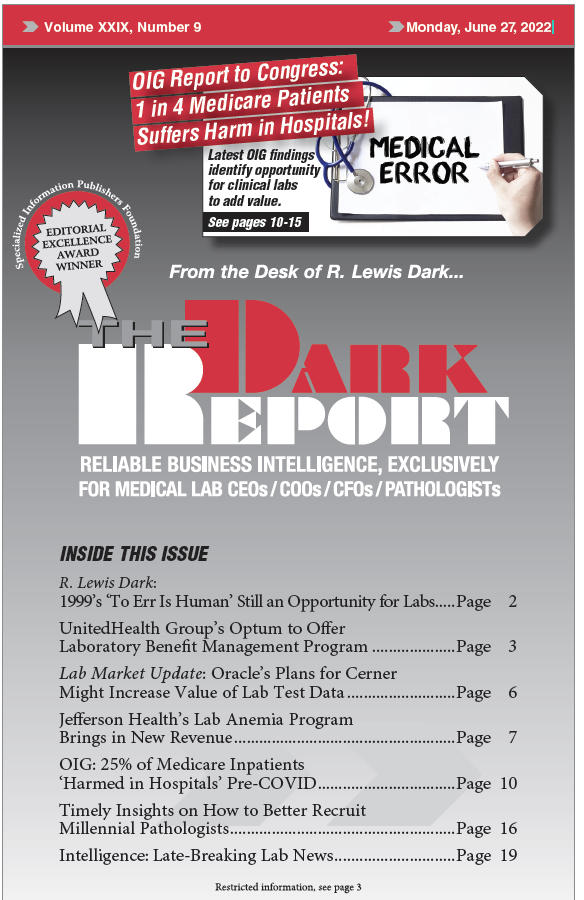This is an excerpt of a 1,355-word article in the June 21, 2022 issue of THE DARK REPORT. The full article is available to members of The Dark Intelligence Group. CEO SUMMARY: UnitedHealth Group subsidiary Optum announced a new laboratory benefits management program aimed at improving utilization of genetic/molecular clinical laboratory testing. The goal is …
Optum to Offer Laboratory Benefits Management to other Health Plans Read More »
To access this post, you must purchase The Dark Report.


